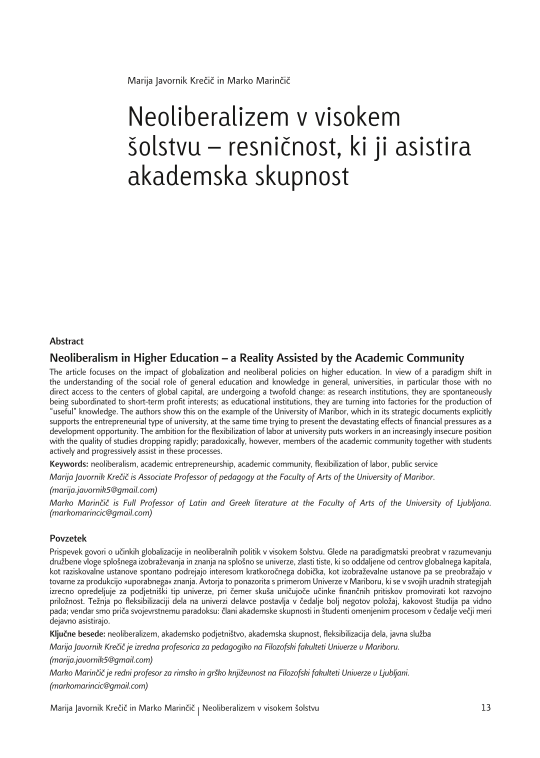The article focuses on the impact of globalization and neoliberal policies on higher education. In view of a paradigm shift in the understanding of the social role of general education and knowledge in general, universities, in particular those with no direct access to the centers of global capital, are undergoing a twofold change: as research institutions, they are spontaneously being subordinated to short-term profit interests; as educational institutions, they are turning into factories for the production of “useful” knowledge. The authors show this on the example of the University of Maribor, which in its strategic documents explicitly supports the entrepreneurial type of university, at the same time trying to present the devastating effects of financial pressures as a development opportunity. The ambition for the flexibilization of labor at university puts workers in an increasingly insecure position with the quality of studies dropping rapidly; paradoxically, however, members of the academic community together with students actively and progressively assist in these processes.




